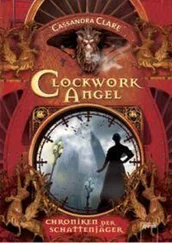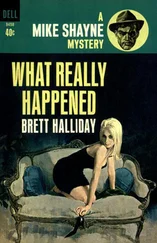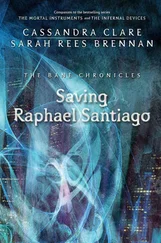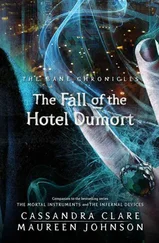It was a beautiful night to meet a beautiful boy.
The music had caught Magnus’s ear first, and then the laughter. Magnus had turned to look and saw sparkling dark eyes and rumpled hair, and the play of the musician’s fingers. Magnus had a list of favored traits in a partner—black hair, blue eyes, honest—but in this case what drew him in was an individual response to life. Something he hadn’t seen before, and which made him want to see more.
He moved closer, and managed to catch
Imasu’s eye. Once both were caught, the game could begin, and Magnus began it by asking if Imasu taught music. He wanted to spend more time with Imasu, but he wanted to learn as well—to see if he could be absorbed in the same way, create the same sounds.
Even after a few lessons, Magnus could tell that the sounds he made with the charango were slightly different from the sounds Imasu made. Possibly more than slightly. Ragnor and Catarina both begged him to give the instrument up. Random strangers on the street begged him to give the instrument up. Even cats ran from him.
But: “You have real potential as a musician,” Imasu said, his voice serious and his eyes laughing.
Magnus made it his policy to listen to people who were kind, encouraging, and extremely handsome.
So he kept at it with the charango , despite the fact that he was forbidden to play it in the house. He was also discouraged from playing it in public places by a crying child, a man with papers talking about city ordinances, and a small riot.
As a last resort he went up to the mountains and played there. Magnus was sure that the llama stampede he witnessed was a coincidence. The llamas could not be judging him.
Besides, the charango was definitely starting to sound better. He was either getting the hang of it or succumbing to auditory hallucinations. Magnus chose to believe it was the former.
“I think I really turned a corner,” he told Imasu earnestly one day. “In the mountains. A metaphorical, musical corner, that is. There really should be more roads up there.”
“That’s wonderful,” Imasu said, eyes shining. “I can’t wait to hear it.”
They were in Imasu’s house, as Magnus was not allowed to play anywhere else in
Puno. Imasu’s mother and sister were both sadly prone to migraines, so many of
Magnus’s lessons were on musical theory, but today Magnus and Imasu were in the house alone.
“When can we expect your mother and sister back?”
Magnus asked, very casually.
“In a few weeks,” Imasu replied. “They went to visit my aunt. Um. They didn’t flee
—I mean, leave the house—for any particular reason.”
“Such charming ladies,”
Magnus remarked. “So sad they’re both so sickly.”
Imasu blinked.
“Their headaches?” Magnus reminded him.
“Oh,” Imasu said. “Oh, right.” There was a pause, then Imasu clapped his hands together. “You were about to play something for me!”
Magnus beamed at him. “Prepare,” he intoned, “to be astounded.”
He lifted the instrument up in his arms.
They had come to understand each other, he felt, his charango and he. He could make music flow from the air or the river or the curtains if he so chose, but this was different, human and strangely touching.
The stumble and screech of the strings were coming together, Magnus thought, to form a melody. The music was almost there, in his hands.
When Magnus looked at Imasu, he saw
Imasu had dropped his head into his hands.
“Er,” Magnus said. “Are you quite all right?”
“I was simply overcome,” Imasu said in a faint voice.
Magnus preened slightly. “Ah. Well.”
“By how awful that was,” Imasu said.
Magnus blinked. “Pardon?”
“I can’t live a lie any longer!” Imasu burst out. “I have tried to be encouraging.
Dignitaries of the town have been sent to me, asking me to plead with you to stop.
My own sainted mother begged me, with tears in her eyes—”
“It isn’t as bad as all that—”
“Yes, it is!” It was like a dam of musical critique had broken. Imasu turned on him with eyes that flashed instead of shining. “It is worse than you can possibly imagine! When you play, all of my mother’s flowers lose the will to live and expire on the instant. The quinoa has no flavor now. The llamas are migrating because of your music, and llamas are not a migratory animal. The children now believe there is a sickly monster, half horse and half large mournful chicken, that lives in the lake and calls out to the world to grant it the sweet release of death. The townspeople believe that you and I are performing arcane magic rituals—”
“Well, that one was rather a good guess,” Magnus remarked.
“—using the skull of an elephant, an improbably large mushroom, and one of your very peculiar hats!”
“Or not,” said Magnus. “Furthermore, my hats are extraordinary.”
“I will not argue with that.” Imasu scrubbed a hand through his thick black hair, which curled and clung to his fingers like inky vines. “Look, I know that I was wrong. I saw a handsome man, thought that it would not hurt to talk a little about music and strike up a common interest, but
I don’t deserve this. You are going to get stoned in the town square, and if I have to listen to you play again, I will drown myself in the lake.”
“Oh,” said Magnus, and he began to grin. “I wouldn’t. I hear there is a dreadful monster living in that lake.”
Imasu seemed to still be brooding about
Magnus’s charango playing, a subject that
Magnus had lost all interest in. “I believe the world will end with a noise like the noise you make!”
“Interesting,” said Magnus, and he threw his charango out the window.
“Magnus!”
“I believe that music and I have gone as far as we can go together,” Magnus said.
“A true artiste knows when to surrender.”
“I can’t believe you did that!”
Magnus waved a hand airily. “I know, it is heartbreaking, but sometimes one must shut one’s ears to the pleas of the muse.”
“I just meant that those are expensive and I heard a crunch.”
Imasu looked genuinely distressed, but he was smiling, too. His face was an open book in glowing colors, as fascinating as it was easy to read. Magnus moved from the window into Imasu’s space and let one hand curl around Imasu’s callused fingers, the other very lightly around his wrist. He saw the shiver run through Imasu’s whole body, as if he were an instrument from which Magnus could coax any sound he pleased.
“It desolates me to give up my music,”
Magnus murmured. “But I believe you will discover I have many talents.”
That night when he came home and told
Ragnor and Catarina that he had given up music, Ragnor said, “In five hundred years
I have never desired the touch of another man, but I am suddenly possessed with a desire to kiss that boy on the mouth.”
“Hands off,” said Magnus, with easy, pleased possessiveness.
The next day all of Puno rose and gathered together in a festival. Imasu told
Magnus he was sure the timing of the festival was entirely unrelated. Magnus laughed. The sun came through in slants across Imasu’s eyes, in glowing strips across his brown skin, and Imasu’s mouth curled beneath Magnus’s. They did not make it outside in time to see the parade.
Magnus asked his friends if they could stay in Puno for a while, and was not surprised when they agreed. Catarina and
Ragnor were both warlocks. To them, as to Magnus, time was like rain, glittering as it fell, changing the world, but something that could also be taken for granted.
Читать дальше












